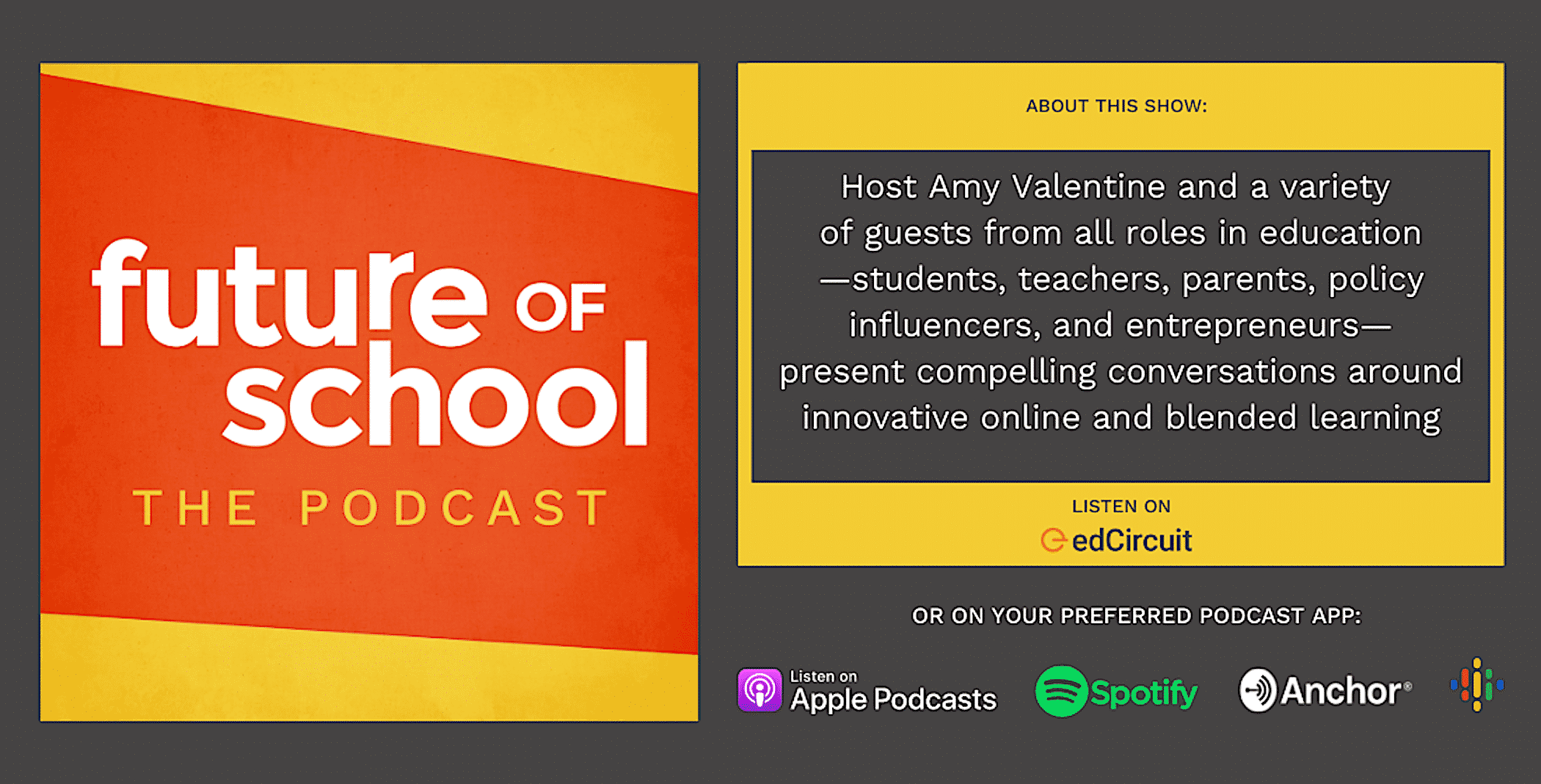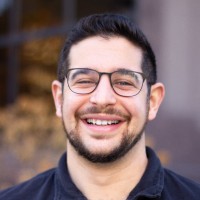Table of Contents
In this episode, you’ll hear about many components contributing to an expanded, enhanced definition of school choice. When students and families have options and information, they can pursue the choices that are personalized to their needs and provide the greatest flexibility to achieve each of their goals.
The episode begins with the segment “Parent’s Thoughts,” presented by education advocacy pioneer Tillie Elvrum (0:39). Tillie, who co-founded Parent Support for Online Learning, a group of thousands of parents providing resources and mentorship, speaks about the positive impact of online learning in her own life. She discusses her son’s experience in a full-time online public school and then shares her hope that students everywhere will have choice over the time, pace and place of their learning because “students work best when they’re masters of their own education.”
The Role of the Teacher in Modern Learning Environments
Then, in the featured interview (2:25), host Amy Valentine welcomes Kareem Farah, an award-winning former HS math teacher who is co-founder and CEO of the Modern Classrooms Project. Kareem shares his thoughts on the role of the teacher in modern learning environments, sharing that the teacher is largely the facilitator who can ensure learning is student-driven. He describes how he learned as a teacher to “eliminate the lecture,” a component of instruction he found ineffective and disengaging, and applied himself to more innovative practices.
Kareem also talks about the effects of the pandemic on the work he’s doing with the Modern Classrooms Project. The Project’s research-backed instructional model promotes teacher-created videos, self-paced student learning, and mastery-based grading, and demand has increased during the remote learning period. The approach speaks to the power of innovative thinking for educators, and giving students autonomy and choice in learning.
This episode’s Research Insight (18:53) highlights that flexibility is the top reason students choose online or blended learning, including flexibility related to their schedule, expanded course offerings, the ability to compete in an elite sports program, and more. Flexibility has never been more possible and is an essential component in the future of school choice.
Online Learning
Next, Christian Rodriguez shares a student’s thoughts about the impact of online learning (19:25). Currently a college student, Christian was involved in online learning throughout middle and high school. He found that it allowed him to maximize his time, by providing flexibility over when he completed his school work. He had a busy schedule working on a farm and participating in numerous organizations, and online schooling made sure he could do it all.
Vision of Future of School
The episode concludes with an interview conducted by Jorgie Ingram, a Future of School Student Scholarship winner (21:32). Jorgie chats with Amy Valentine to dive into a vision of the future of school. What can it look like? Jorgie and Amy also discuss one of the most important ways technology can make an impact, which is to increase communication among stakeholders.
Learn more about Future of School and its mission to mobilize change in American K-12 education from a one-size-fits-all system to one that ensures all students reach their unbounded potential no matter where their learning takes place at www.futureof.school. Follow Future of School on Twitter @futureof_school and follow Amy Valentine @amyvalentine555 to keep up-to-date on exciting initiatives and opportunities.
Subscribe to edCircuit to stay up to date on all of our shows, podcasts, news, and thought leadership articles.









